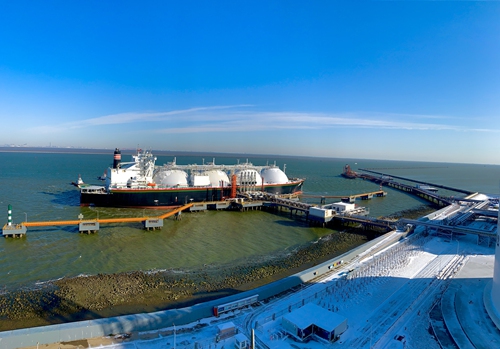
File photo: Courtesy of Sinopec
Chinese oil major Sinopec is pumping more clean energy sources to North China as large parts of the country brace for a new cold front that will send temperatures plunging.
The daily supply of natural gas has been boosted by an additional 10 million cubic meters to North China while nationwide supply has also risen to 180 million cubic meters, the company said in a statement sent to the Global Times on Monday, adding that residential and industrial demand has been met effectively.
The company resolved to tap its resources from multiple fronts, and its daily natural gas output nationwide has been ratcheted up to 99.79 million cubic meters, a record set on Sunday.
The company also ensured its natural gas storage facilities around the country contained a ready level of gas, at 1.79 billion cubic meters (bcm). Now these facilities can perform peak/valley allocation and distribution of natural gas at any time.
Sinopec said it had booked 27.2 bcm of natural gas for the winter/spring season from domestic and global sources and its liquefied natural gas (LNG) terminals are working at full throttle. A further LNG terminal will be put into operation by end-November in North China's Tianjin Municipality and the doubled LNG receiving capacity will ensure a warm winter for residents in northern parts of the country.
The company said it will prioritize civilian use and tap the national pipelines for natural gas dispatching.
China's largest oil and gas producer and supplier, China National Petroleum Corp also said its natural gas supply for the winter/spring season will for the first time surpass 100 bcm, with an annual increase of 8.4 percent over that of 2020, domestic news portal 21jingji.com reported on November 18.
The National Development and Reform Commission (NDRC) of China declared over the weekend that China has full confidence in ensuring supplies including energy and vegetables for the winter and stabilizing prices.
China's daily coal output has now stabilized after reaching over 12 million tons and the price of coal futures has declined to 800 yuan ($125.25) per ton, a fall of nearly 60 percent from the peak reached in October, according to the NDRC.
